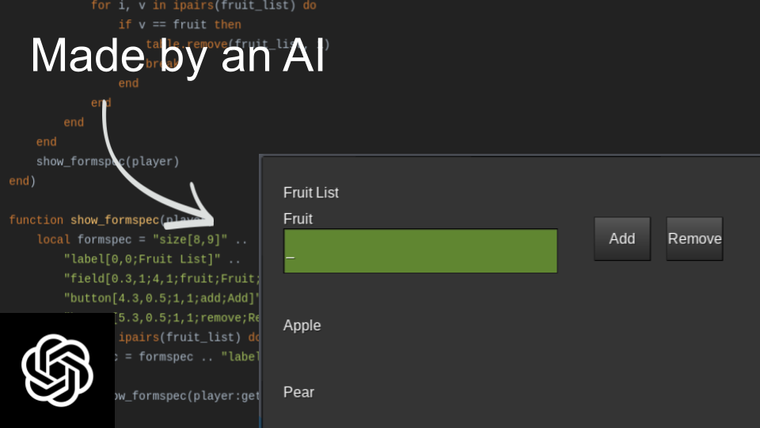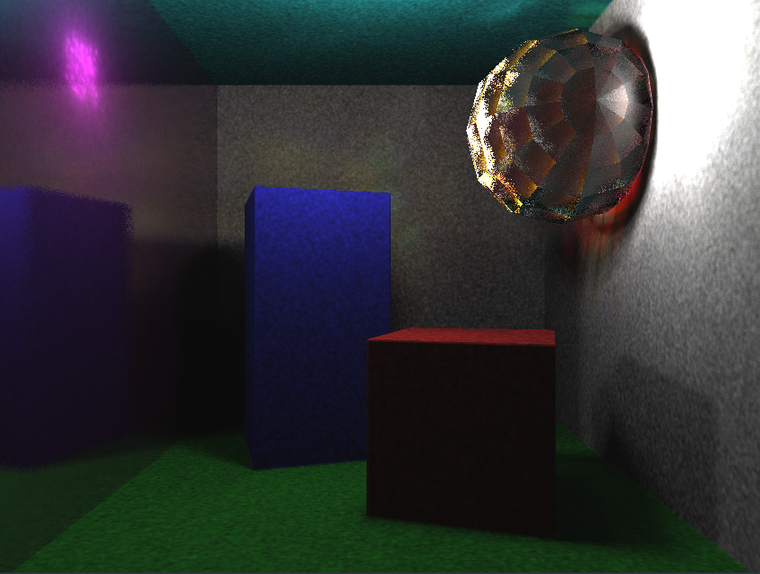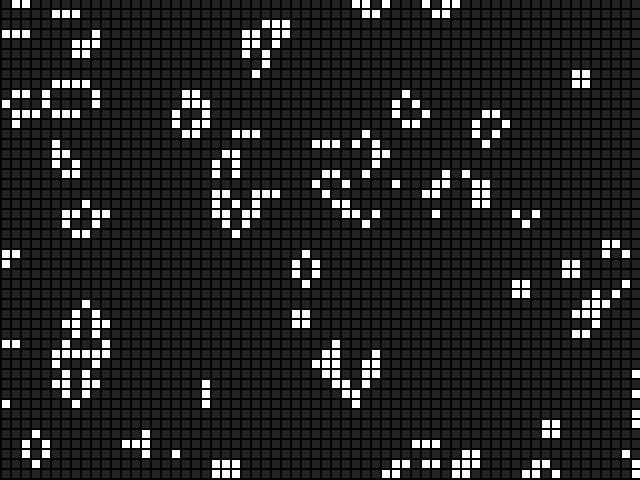
ChatGPT: An AI that can write Minetest mods... kinda
This article was written at a time when LLM AIs were brand new. As such, this post is very outdated and does not represent my current opinions.
OpenAI’s GPT-3 is a powerful new Artificial Intelligence model that uses deep learning to produce human-like text. It was trained on a large body of text, with sources including websites, Wikipedia, and books. It doesn’t just understand natural language, it can also work with programming languages.
This topic is especially relevant with the recent introduction of GitHub Copilot. Copilot is an “AI pair programmer” for your IDE that suggests code and entire new functions. It’s based on same technology as GPT-3, but with a model derived from GPT-3 and optimised for code called Codex. This article will use GPT-3 and Codex, as I wasn’t able to get GitHub Copilot, but the results will be identical.
In this article, I will ask GPT-3 to write Minetest code and explore how much it knows about modding, creating simple and advanced Minetest mods. I will finish by using it to convert Minecraft mods to Minetest.
Read more of "ChatGPT: An AI that can write Minetest mods... kinda"


